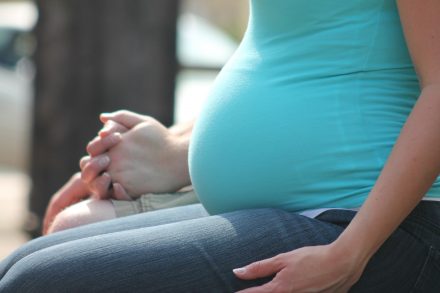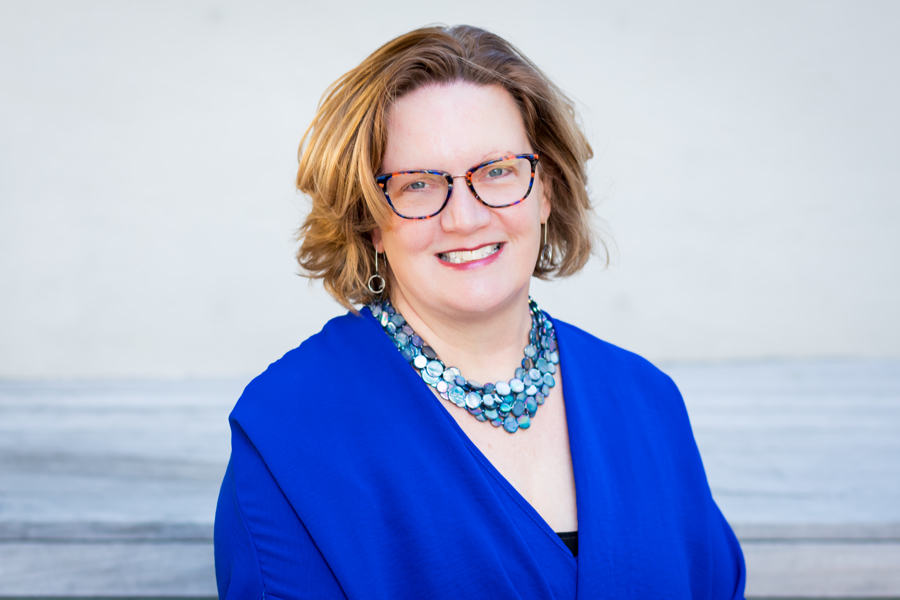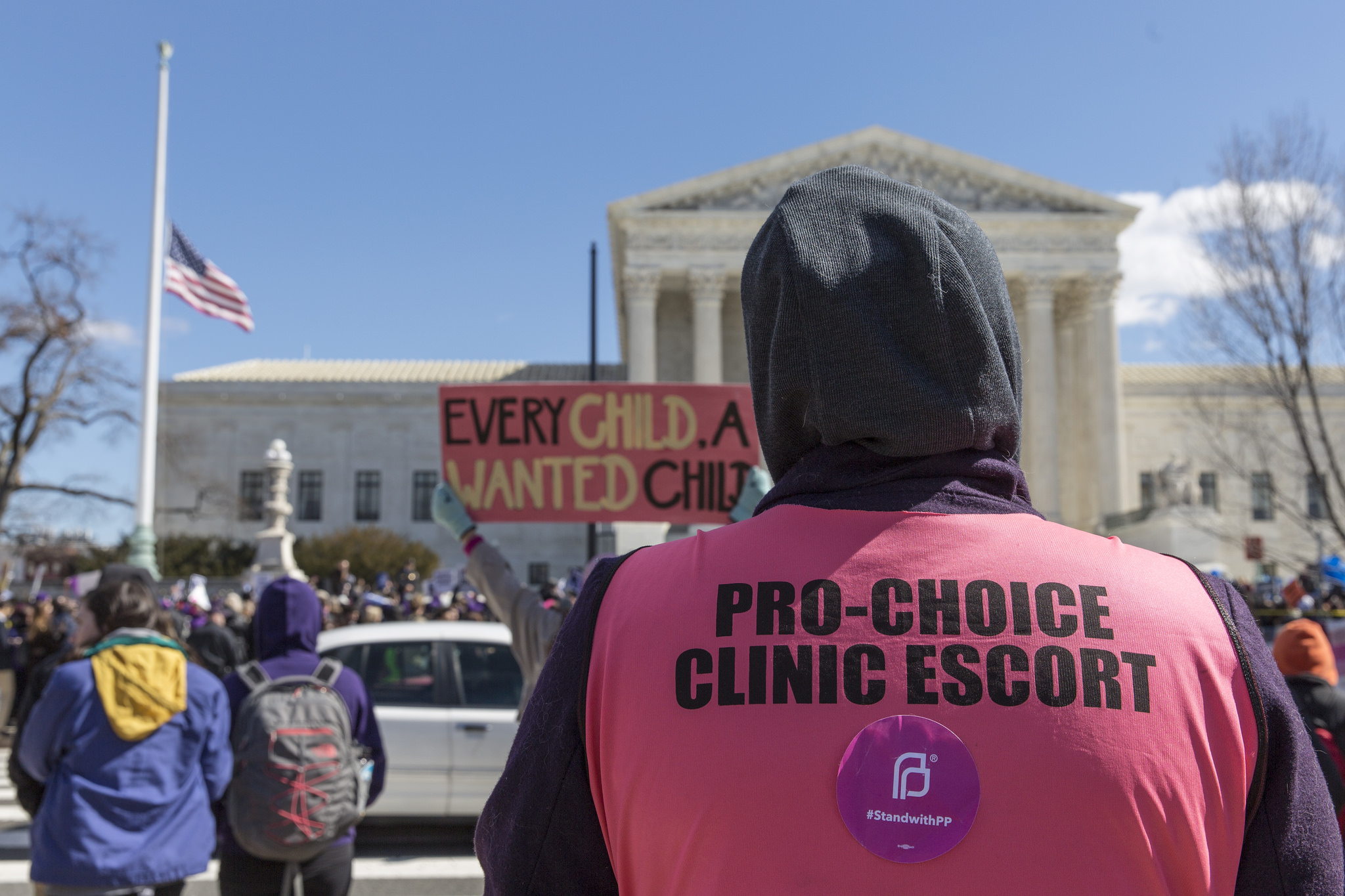Abortion rights, women of color, and LGBTQIA+ people are under attack. Pledge to join us in fighting for gender justice.
My Faith, My Choice, and the Supreme Court
 This is an abortion story that is about not having to make that decision. Having come close to that prospect gave me an even deeper respect for women who do make that choice – and for the faith leaders who accompany women on that journey, as my woman pastor counseled me years ago.
This is an abortion story that is about not having to make that decision. Having come close to that prospect gave me an even deeper respect for women who do make that choice – and for the faith leaders who accompany women on that journey, as my woman pastor counseled me years ago.
In the fall of 1997, I discovered that I was pregnant. My husband and I were already the parents of a 2-year-old son, and while we had planned to have a second child, our goal was to time a pregnancy such that the baby would arrive in the summer of 1999 after I had finished grad school. But, our birth control had failed. After long conversations and a close look at our incredibly tight budget we decided to continue the pregnancy.
After I had passed my 12th week we announced the pregnancy to our church friends on the first Sunday in December – the beginning of the pre-Christmas Christian liturgical season of Advent – as we led the congregation in the ritual of lighting the candle of Hope.
The next day I completed the paperwork at a routine check up to have basic genetic screening done. I was only 29 years old and at that point there was no family history that would indicate my pregnancy could be risky, but I like generally like to operate with lots of information so I blithely said, “sure, let’s just check this box.”
Surprisingly, the initial results were troubling, and my midwife strongly recommended further testing. Suddenly, I was thrown into a scary, unfamiliar world of ultrasounds and amniocentesis and more. The bills began to rack up and strain our budget. Much more concerning was the realization that it would take weeks before we had definitive results — my midwife estimated that I would get those results around Christmas Day, the day I would be 20 weeks pregnant.
Knowing that some states prohibit abortions after 20 weeks, I tearfully asked what my options would be if the fetus turned out to have serious abnormalities and I wanted to abort the pregnancy. I wanted the information now because I would have to decide almost immediately after getting the results – and the added heartbreak of making that choice on Christmas would further complicate my decision making. I wanted to know what the procedure would entail, what the laws were where I lived and nearby, the costs, and whether there were any OB/GYNs in the area who would perform the procedure.
My midwife called back a few hours later to say that she had found an OB/GYN – ironically, the doctor who had delivered my first son after an emergency meant that the midwives alone couldn’t do that delivery – and a hospital that would do the procedure. She described what would happen to me and the fetus and who could be with me. I had all the legal and medical information I needed.
But, that wasn’t enough. I was baptized into the United Church of Christ (UCC) as an infant and have been an active lay leader in UCC congregations since junior high. I was potentially facing the most complicated, wrenching ethical decision of my life. I wanted and needed spiritual guidance.
I will forever be deeply grateful that one of my pastors at the time, Rev. Barbara Gerlach, has a long history of counseling women facing this choice. She recently recorded for the Religious Coalition for Reproductive Choice the stories of her abortion counseling work pre-Roe v. Wade. Barbara spent hours in our living room holding me, talking through the options with my husband and me, promising that no matter what happened she would accompany us every step of the way – including, if we so desired, being with us at the procedure and baptizing the aborted fetus. She helped me develop an ethical framework I’ve used for many other tough decisions since then: have compassion with yourself regarding the choice you are making — but make a choice about which you can have compassion for yourself.
The call from the genetic testing technician came at 2:30pm on Christmas Eve. Results for abnormalities were negative. The baby who was born the following spring is my nearly 6-foot tall son Peter, a college junior, certified advanced emergency medical technician, and aspiring Marine. I’m grateful every day that he and his older brother Ben are in my life.
At Christmas Eve worship that night, I thought about the baby whose birth we commemorated that holy night – how he grew into a man who flipped tables at the temple, held people accountable to values of justice, love, and compassion, and who invited into ministry with him women and men who were the most marginalized people of his time. I was completely confident that no matter what choice I had made the Jesus I follow would be beside me on that journey – embodied in Rev. Barbara and my loving family.
This week, women are coming forward to share their abortion stories because they know that we must #RiseUpforRoe and #SaveSCOTUS by joining together to #StopKavanaugh. And women faith leaders are adding their voices to this conversation. They know that if Brett Kavanaugh is confirmed to a lifetime appointment on the U.S. Supreme Court, women will lose our rights to make these complicated decisions ourselves.
I trust women. I trust women who choose to continue pregnancies that bring children with disabilities into the world. And I trust women who choose to abort–for whatever reason. I am fairly certain that if the test results had been different, I would have opted to abort the pregnancy…though I’ll really never know as I didn’t actually have to face the choice. I am so humbled by those who are resisting by coming forward to share their stories and to help us preserve these rights for our daughters and granddaughters.




